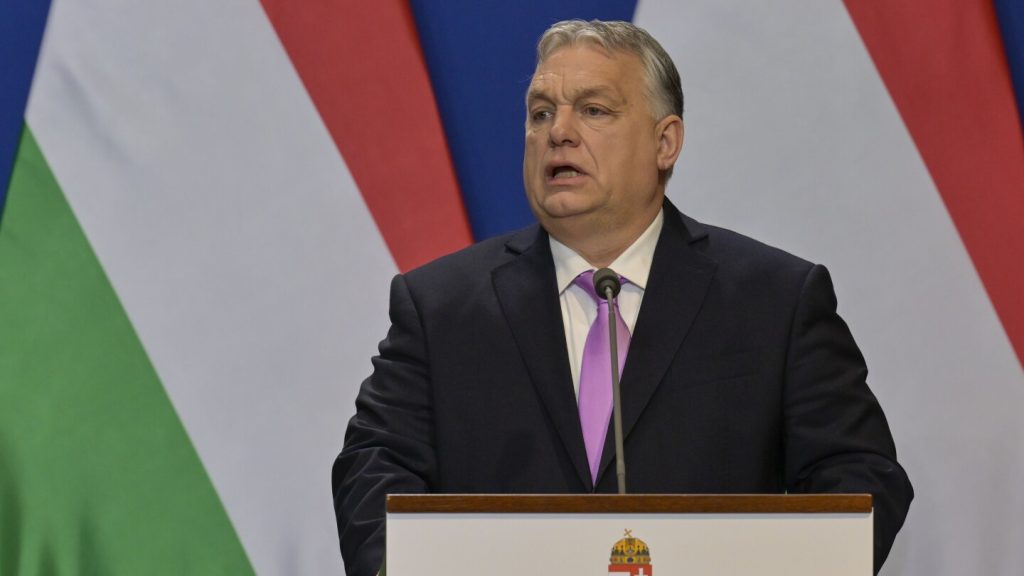Orbán has faced criticism from within the EU for his close ties to Putin and his refusal to support Western military aid to Ukraine. Critics argue that his proposals would only benefit Russia and allow them to retain occupied territories in Ukraine. Despite these criticisms, Orbán has framed the upcoming European Parliament election in Hungary as a choice between war and peace, positioning his party as the only one calling for an immediate end to the fighting in Ukraine.
The issue of whether Ukraine should be allowed to strike targets in Russia with Western-supplied weapons has divided Western leaders since the start of the conflict. While there are fears that such actions could escalate the conflict and lead to a global conflict, there is also concern about Putin’s continued aggression and the exploitation of Ukrainian shortages in troops and ammunition. The delay in U.S. military aid and inadequate military production in Western Europe have further complicated the situation on the ground.
Orbán’s comments come at a time when tensions between Russia and Western countries are at an all-time high. He has criticized NATO proposals that would allow Kyiv to strike military bases in Russia, warning that such actions could lead to the destruction of Europe. Despite the pushback from Orbán, Western leaders are grappling with how to respond to Russia’s aggression and support Ukraine without escalating the conflict further.
The situation in Ukraine remains dire, with ongoing fighting and humanitarian concerns. The conflict has already resulted in significant loss of life and displacement of civilians, and there are fears that the situation could worsen if a resolution is not reached soon. Western countries continue to debate their next steps in supporting Ukraine and countering Russian aggression, as Orbán’s stance adds another layer of complexity to an already complicated situation.
Orbán’s campaign for the European Parliament election has put a spotlight on his stance on the conflict in Ukraine and his close ties to Putin. While he presents his party as a voice for peace, critics argue that his proposals would only benefit Russia and undermine efforts to support Ukraine. As the election approaches, Orbán’s position on the conflict and his relationship with Putin will be a key issue for voters in Hungary, and could have broader implications for EU policy towards the conflict in Ukraine.
Overall, the situation in Ukraine remains fragile, with ongoing violence and humanitarian concerns. Western leaders are in a delicate position as they navigate how to support Ukraine without escalating the conflict further. Orbán’s comments add another layer of complexity to the situation, as his stance on the conflict and his relationship with Putin continue to draw criticism from within the EU. As the European Parliament election approaches, Orbán’s position on the conflict in Ukraine will be a key issue for voters in Hungary and could impact broader EU policy in the region.


